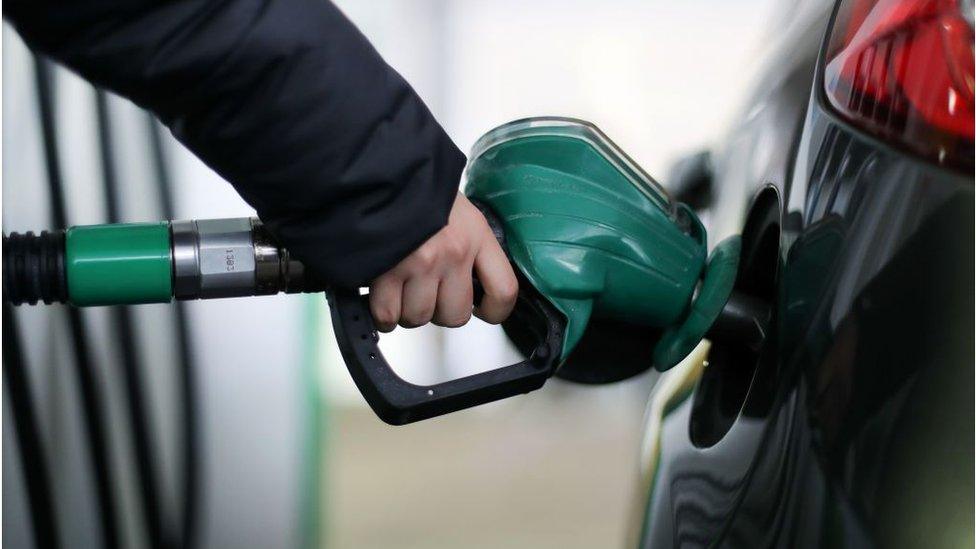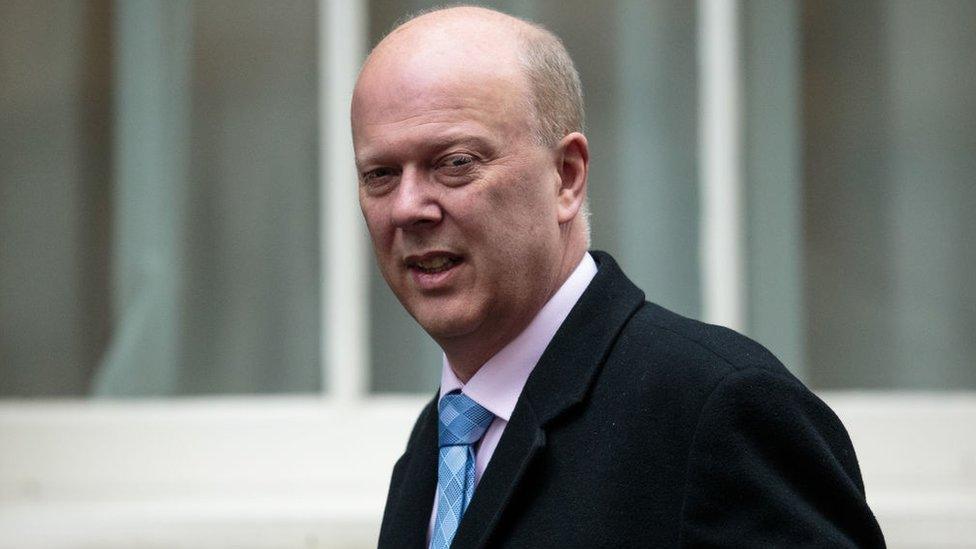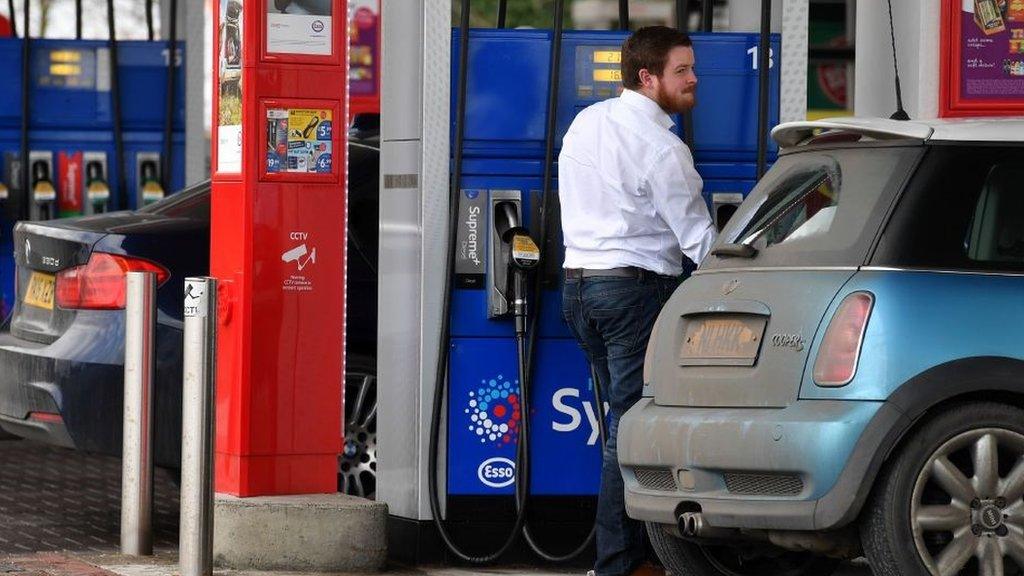Motorway petrol prices 'exploitative', says Chris Grayling
- Published

The average price for unleaded petrol is much higher on motorways, industry figures suggest
The transport secretary has called for an investigation into "exploitative" motorway fuel prices.
Chris Grayling told the competitions watchdog prices could be up to 19p more per litre than on forecourts elsewhere.
He said the UK's three biggest operators - Moto, Welcome Break and RoadChef - should be investigated to ensure drivers got a "fairer deal".
Roadchef said it did not set fuel prices. Moto said prices reflected the cost of building and running services, external.
In a statement, it said many of its forecourts were owned by fuel companies who set the prices to "reflect the complexities of motorway trading, such as round the clock opening."
A company spokesman stressed that "where the forecourt is owned by Moto, we match the fuel company's price."
It comes as millions of Britons are expected to use the motorways over Easter.
Writing to Andrea Coscelli, head of the Competition and Markets Authority (formerly the Office of Fair Trading), Mr Grayling says: "I am concerned that prices which are higher than other forecourts may exploit users in a situation where there is less choice and competition and discourage motorists from stopping and re-fuelling when, for safety reasons, they should."

Transport Secretary Chris Grayling says the higher prices have not been "fully explained"
He adds: "I would welcome a view from the CMA on whether the three private companies that currently operate the majority of MSAs (motorway service areas) are exercising market power to the detriment of motorists."
Moto, Welcome Break and RoadChef run most of the 112 motorway service areas across the UK.
According to industry figures published on Thursday, the average price for unleaded petrol at MSAs is 137.7p per litre, compared to a UK average of 120.11p per litre.
The average unleaded price at supermarkets is 116.74p.
It means filling up the average car with unleaded fuel costs around £10 more on the motorway.
Getting worse
Mr Grayling pointed to RAC figures from 2011, which showed that average petrol prices then were just 7.5p higher, showing the "situation had worsened".
He said he understood that MSAs had higher overheads and infrastructure costs, but that their higher prices were "not fully explained".
In 2013, a study of the UK petrol and diesel market found that fuel was significantly more expensive at motorway service stations.
The Office of Fair Trading was concerned that motorists were not able to see the prices until they had left the motorway and requested new signs on motorways to display prices.
The plans were scrapped after a trial run of the signs produced no evidence of savings.
Simon Williams, fuel spokesman for the RAC, welcomed the minister's intervention as "great news for motorists".
"We have long called for something to be done about the cost of motorway fuel because there's nothing to justify the sky-high price.
"Drivers filling up motorway services often put in the bare minimum but this can easily backfire. Running out of fuel on a motorway puts lives at risk."
The AA said motorists had for too long been treated like "hostages" by MSAs. "We welcome any move to deter rip-off motorway pump prices," the organisation said.
A spokesperson for Roadchef commented: "Roadchef does not operate the petrol station forecourts at any of our service areas and does not set the price of fuel."
The BBC has contacted Welcome Break for comment.
- Published20 March 2018
